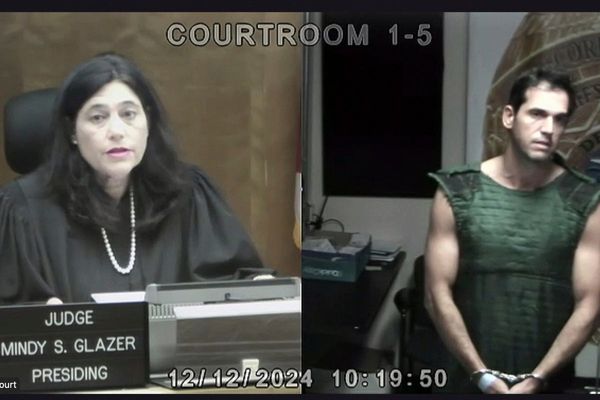
“The media has revealed its shortcomings, and that the media is not a place for complexity; truth is too much to be left to television,” Stan Grant told his former employer the ABC last week.
Reflecting on the media’s attempts to wrestle with the concept of an Indigenous Voice to Parliament in the past year, he concluded: “I don’t think we can squeeze in the fragility of 200 years of this history into a newspaper headline, or television news grab, or a radio interview, or a debate.”
Here’s a few examples he may have been thinking of.
1. “RACIST OR JUST STUPID”
2. “No voters branded ‘racist and stupid’ by prominent Yes campaigner”
Addressing an event in Bunbury, Western Australia, in early September, prominent Yes campaigner Professor Marcia Langton said this of the No campaign: “Every time the No case raises one of their arguments, if you start pulling it apart, you get down to base racism. I’m sorry to say it, but that’s where it lands — or just sheer stupidity.”
The story is written up under the headline “RACIST OR JUST STUPID” by the local paper on September 12, and picked up by The Australian the following day under the headline “No voters branded ‘racist and stupid’ by prominent Yes campaigner”. After a backlash about the disjuncture between the headline and story, the piece was altered. Opposition Leader Peter Dutton’s Facebook post was never taken down.
3. “Anti-Voice campaign director says white people will be ‘paying to live here’ if referendum succeeds”
The story recaps, among other things, a December podcast in which a little-known No campaigner and former One Nation candidate, Narungga elder Kerry White, argued that the Voice, a proposed advisory body that would make representations to the government, was designed to “get rid of the Parliament that’s there now and the Voice will end up taking over”.
And you can call me a conspiracy theorist if you like, but I know the way that these people work and that’s what will end up happening. Aboriginal people will be running this country, and all the white people here will be paying to live here.
That these assertions are made with zero evidence is mentioned first in the piece’s ninth paragraph.
4. “ ‘Conspiracy’: Yes figure’s Voice admission”
The effect is particularly pronounced in social media and search engine headlines. Readers who followed the headline link ” ‘Conspiracy’: Yes figure’s Voice admission” (rather than, say, scrolling past and imbibing its general tone and thumbnail image of a worried-looking Thomas Mayo) would be led to a piece now headed “Video Q&A with prominent Yes campaigner Thomas Mayo ahead of the Voice vote”.
The word conspiracy appears once, 21 paragraphs into the piece, in the sentence “This is not a conspiracy.” What the word “admission” in the headline is referring to is unclear — readers looking for the word “admission” or “admit” will not find it, nor does Mayo appear to be confronted with anything about the Voice’s design or long-term goals which he is forced to concede, confess, divulge, accept, disclose or acknowledge.

Along similar lines, The Australian‘s social heading “Yes ad campaign for Voice ‘misleading’ ” omits that the Yes campaign was being called misleading not by any independent fact-checkers, but by prominent No campaigner Advance.
5. “Coalition send letter to AEC over ‘fundamentally lopsided’ Voice call”
Dutton and opposition spokeswoman on legal matters Michaelia Cash were able to dominate the headlines for days with their claim that voting in the Voice was “rigged” in favour of a Yes vote, on account of the Australian Electoral Commission’s approach that ticks would be counted as Yes but crosses would not register as a No.
This was in keeping with decades of legal advice, and had not been the subject of any consternation while the Liberals spent their near decade in power between 2013 and 2022. That Dutton’s claims induced the commission to make a rare public rejection of his “factually incorrect” claim made its way into many headlines covering the story, but not, for whatever reason, Sky News, 2GB or The Daily Telegraph.







